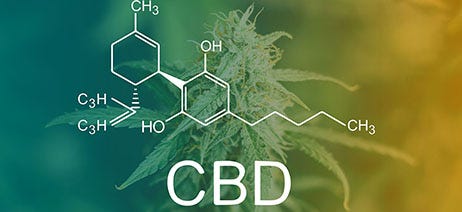
What Is CBD & What Does It Do?
High Points
- CBD is a non-intoxicating cannabinoid that naturally comes from the cannabis plant. It begins as CBDA and requires decarboxylation–exposure to heat or light–to become CBD
- CBD is known to interact with the body’s endocannabinoid system, and many consumers have reported wellness benefits. Research continues to explore its potential for pain, anxiety, sleep, and more.
- CBD comes in multiple forms and product types, including full-spectrum, broad-spectrum, and isolate. This gives consumers flexible options depending on whether they want only CBD or other cannabinoids, terpenes, etc.
CBD, or cannabidiol, is a non-psychoactive compound found in the cannabis plant. In recent years, it has gained significant popularity for its potential therapeutic benefits. From helping with anxiety to managing pain, CBD is increasingly being used for various health and wellness purposes.
In this guide, you’ll learn everything you would want to know about CBD, including:
- What is CBD?
- How Does CBD Work?
- Benefits of CBD
- More About CBD Products
- FAQs About CBD
What is CBD?
CBD, short for cannabidiol, is one of more than 100 cannabinoids found in the cannabis plant. Its precursor is an acidic form known as cannabidiolic acid (CBDA). Unlike THC, the psychoactive compound in cannabis, CBD does not get you “high.” Instead, it interacts with your endocannabinoid system to provide potential therapeutic effects without intoxication.1
Over the years, CBD has become increasingly popular, with an estimated 62% of CBD consumers2 using it to help manage medical conditions like pain, anxiety, and sleep disorders.3 The market for CBD products has grown by more than 50% as more people discover and want to try cannabinoids for their potential benefits.4
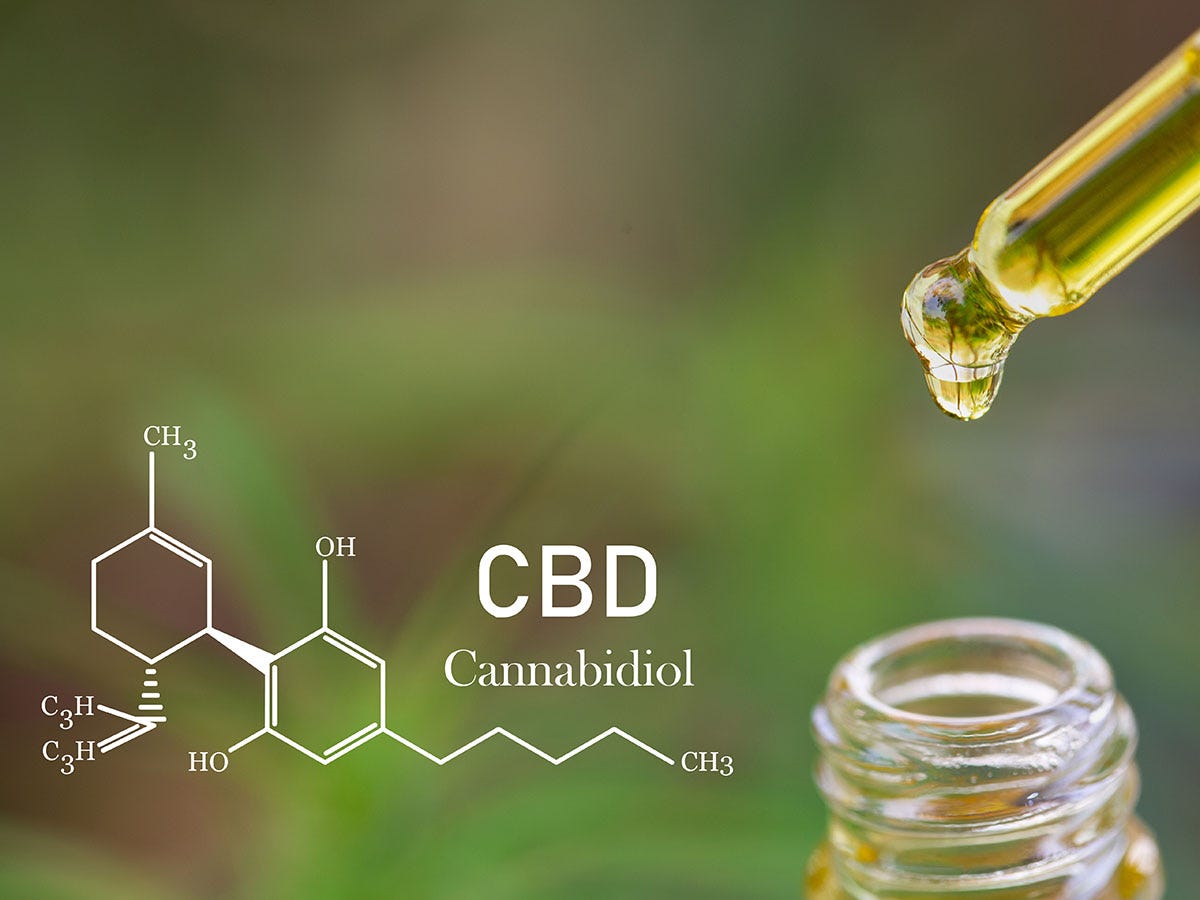

Scientists first discovered CBD in the 1940s. However, it wasn’t until the 1990s that researchers began to understand how CBD interacts with the body’s endocannabinoid system. Since then, the use of CBD has expanded rapidly, and today, it’s used worldwide in various products, from oils and tinctures to edibles and topicals.5
How Does CBD Work?
CBD works with your body’s endocannabinoid system, a complex network of receptors regulating various body functions like mood, pain, and sleep.6 CBD may block certain receptors that transmit pain signals, reducing discomfort.7 It may also help maintain a balance in the body by interacting with the CB1 and CB2 receptors, though the exact way the cannabinoid does this is still being studied.8
CBD does not get you intoxicated or “high” like its cousin THC. We know that THC binds to the CB1 receptor in the brain, which produces the sense of euphoria. CBD doesn’t bind as strongly to cannabinoid receptors, but scientists aren’t exactly sure how it works. There are theories that CBD actually encourages the body to use its own endocannabinoids more efficiently.9 As with most things related to cannabis, more research is needed.
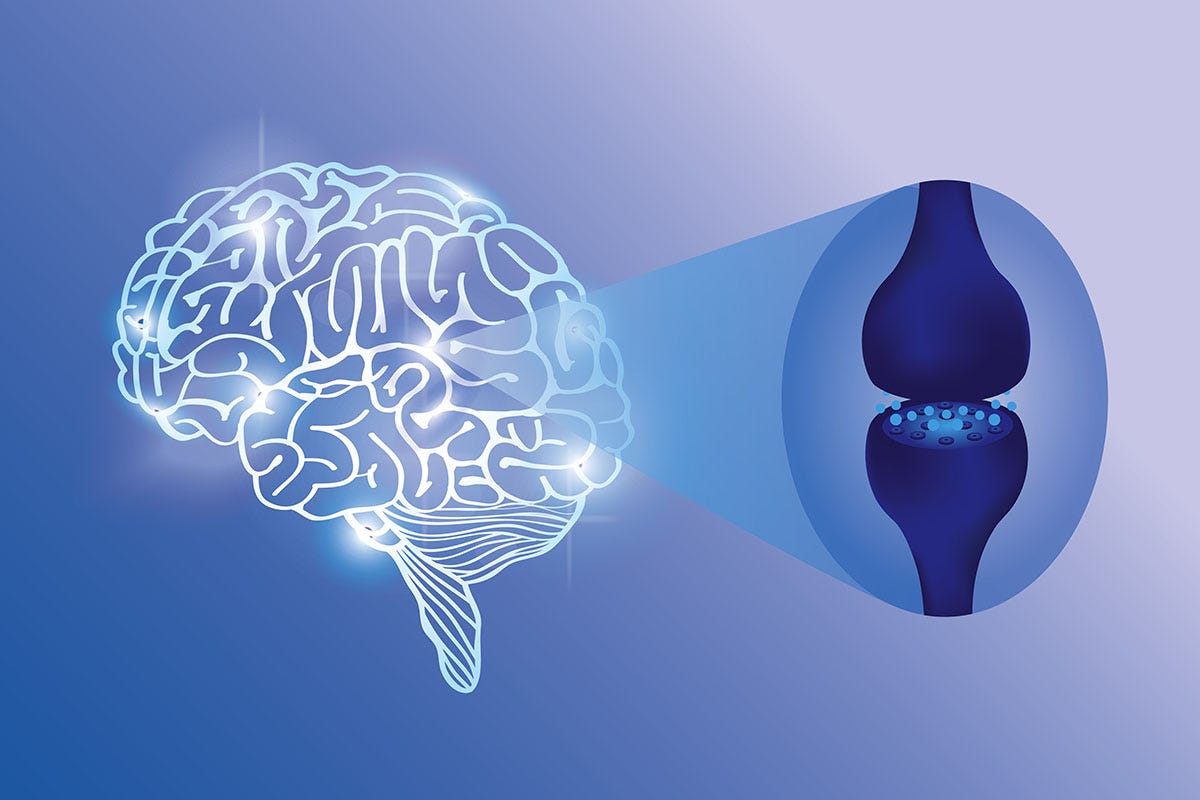

But where does CBD come from? Here’s a little back story: All the cannabinoids we know and love are first formed in the cannabis plant as a single compound called CBGA. As the plant matures and takes in increasing amounts of UV light, CBGA morphs into the acidic precursors THCA and CBDA.10 When the cannabis plant undergoes decarboxylation through exposure to heat or time, the CBDA is converted into CBD.11 You can’t have CBD without CBDA, just like you can’t have THC without THCA.
CBDA and CBD may work together in the body, each amplifying the effects of the other in a phenomenon known as the entourage effect.11
Benefits of CBD
Researchers have studied CBD for its potential health benefits far more extensively than CBDA, largely because CBDA was once thought to be inactive. Only in recent years has CBDA begun to share the spotlight, and both compounds show promise as multifaceted healing agents.12,13 Here are some of the most common uses for CBD and CBDA.
Epilepsy
Early clinical trials and patient reports suggest CBD may help control seizures.14 In 2018, the FDA approved Epidiolex, a CBD-based drug, for treating two severe forms of epilepsy: Lennox-Gastaut syndrome and Dravet syndrome.15 This breakthrough offers hope for those who have struggled with traditional medications.
Fibromyalgia
Research suggests that CBD may help manage fibromyalgia symptoms by reducing pain and inflammation.16 Some patients report that CBD for fibromyalgia allows them to reduce opioid use, offering a natural alternative for pain management, though more studies are needed to confirm its effectiveness.17
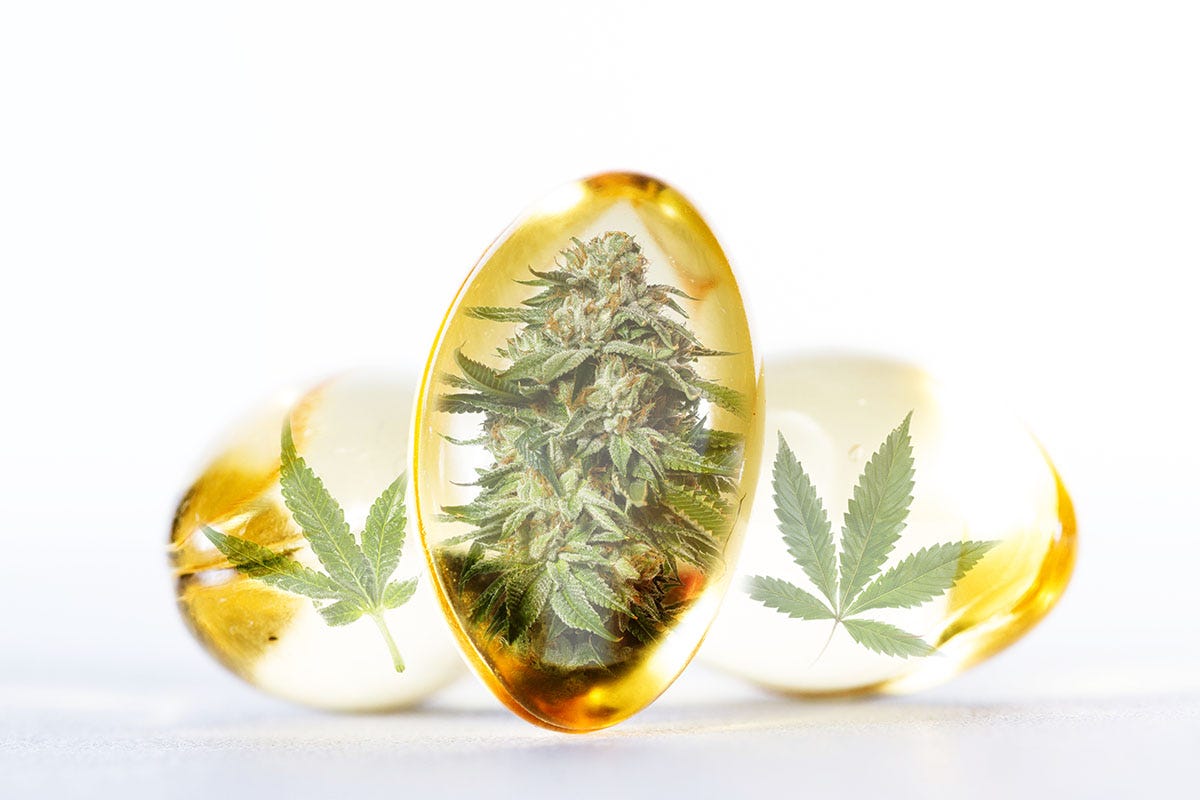

Anxiety & Depression
Emerging studies and anecdotal evidence indicate that CBD may help alleviate anxiety and depression by interacting with serotonin receptors.11 Unlike traditional medications, CBD offers a natural option with fewer side effects for those seeking mood regulation.18
Some research has demonstrated that CBDA may be even better than CBD at binding to certain serotonin receptors, hinting at major untapped possibilities in the field of mental health treatment.13
Pain & Inflammation
CBD shows potential as a treatment for chronic conditions like arthritis and neuropathic pain.19 By interacting with the endocannabinoid system,20 CBD may reduce inflammation and modulate pain, offering a more natural alternative to traditional pain medications.21
CBDA may also help curb pain and inflammation, but through a different method. Instead of binding directly with endocannabinoid receptors, CBDA interacts with endocannabinoid pathways to block cyclooxygenase-2 (COX-2) enzymes that trigger pain and inflammation.22 Nonsteroidal anti-inflammatory drugs (NSAIDs) like ibuprofen work in much the same way.23
Sleep
With up to 70% of Americans not sleeping enough,24 many are looking for ways to get a better night’s sleep. CBD may help improve sleep by reducing anxiety and promoting relaxation. Unlike over-the-counter sleep aids, CBD offers a more natural way to enhance sleep quality without grogginess associated with traditional sleep medication.25
More About CBD Products
CBD comes in various forms, from gummies and other edibles to oil and tinctures, allowing cannabis enthusiasts to choose the type that best suits their needs. Here are some of the most common types of CBD products:
Full Spectrum
Full-spectrum CBD contains all the naturally occurring compounds of the cannabis plant, including THC. This type of CBD triggers the entourage effect, meaning all the cannabinoids work together to give you more and possibly better benefits.26
Broad Spectrum
Broad-spectrum CBD is similar to full-spectrum, but it doesn’t contain any THC. It still promotes the entourage effect, making it a good option if you want to benefit from multiple cannabinoids without any psychoactive THC.27
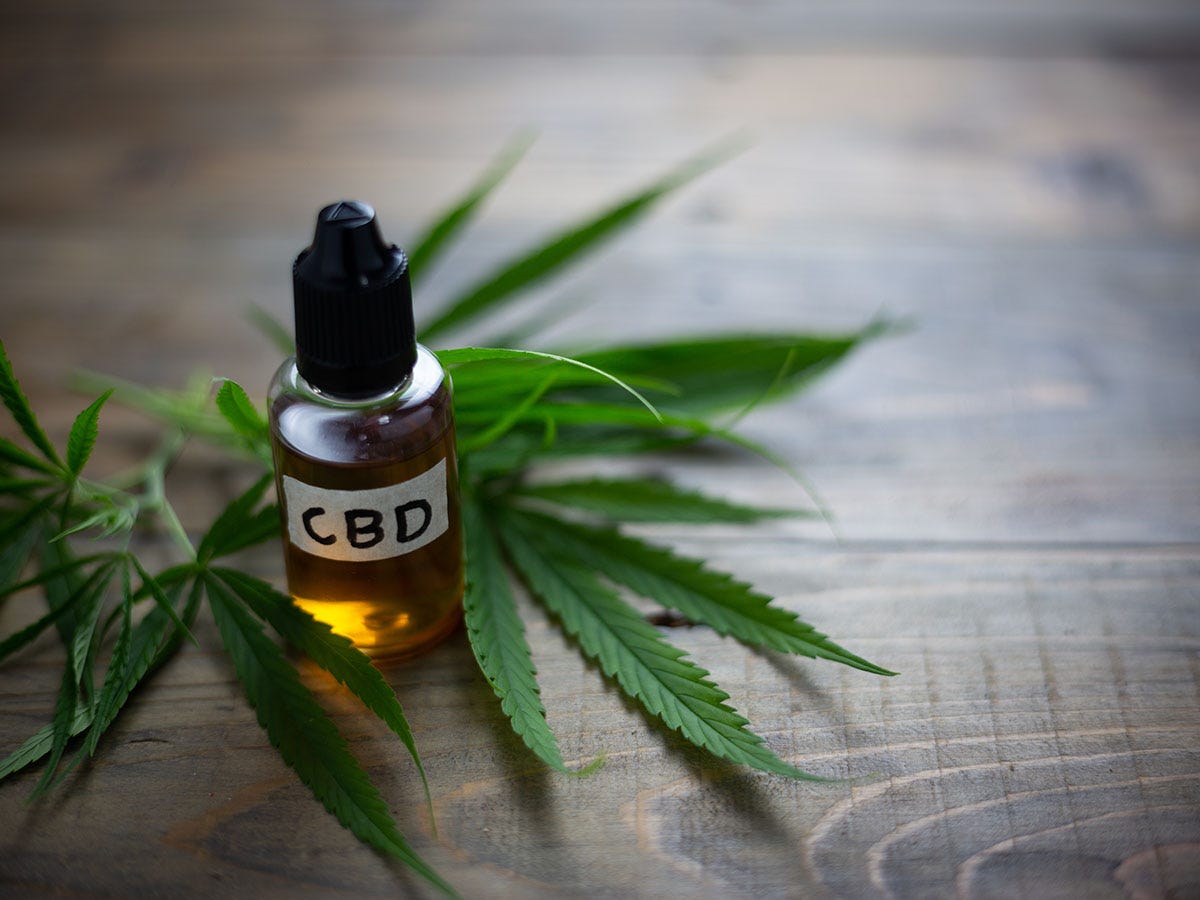

Isolate
CBD isolate is the purest form of CBD, containing only cannabidiol without any other cannabinoids, terpenes, or THC. It’s ideal for those who want to avoid THC altogether and only benefit from CBD.
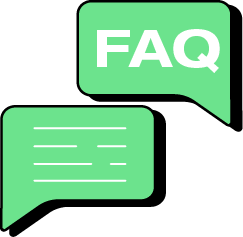

FAQs About CBD
If you’re curious about CBD and want to learn more, you’re definitely not alone. Check out these FAQs to learn more and see if CBD might be right for you.
Does CBD get you “high”?
CBD doesn’t really get you “high;” at least, not in the way that many of us associate with THC. This is because CBD and THC interact with different endocannabinoid receptors in the brain. THC triggers a psychoactive, dopamine-fueled experience, whereas CBD is more subtle, improving your mood by turning the dial down on pain and inflammation.9 You may feel more relaxed and sleepy after ingesting CBD, but nowhere near the same levels caused by THC.28
Is CBD legal?
In the United States, CBD derived from hemp, a cannabis plant that contains 0.3% or less THC and roughly 18% CBD,23 was made federally legal through the 2018 Farm Bill. However, cannabis-derived CBD products (from marijuana plants with more than 0.3% THC) remain illegal under federal law. However, in some states, this is legal. So, it’s important to check your state and local laws before buying CBD products.24
Is CBD good for anxiety?
Various studies suggest that CBD may help reduce symptoms of anxiety without the intoxicating effects associated with THC.31
Are CBD and CBDA different?
Yes, CBD and CBDA are different, but they’re also related. CBDA is produced by the cannabis plant, and when plant material is heated or cured, it converts into CBD.
Where can I buy CBD?
It’s best to buy CBD products from a state-licensed dispensary because these products are thoroughly tested and regulated to ensure consumer safety.
Are there side effects to CBD?
While CBD is generally considered safe, some consumers may experience side effects like fatigue, dry mouth, and changes in appetite.
Is CBD safe?
Most research indicates that CBD is safe for most people when used responsibly.28
What does CBD stand for?
CBD stands for cannabidiol, one of the 100+ cannabinoids found in the decarboxylated cannabis plant.
What does CBDA stand for?
CBDA stands for cannabidiolic acid, the acidic precursor of CBD. It occurs naturally in the cannabis plant.
Is CBD the same as marijuana?
No, CBD is one of the many cannabinoids or plant compounds found in the marijuana or cannabis plant, but it doesn’t produce the psychoactive effects associated with THC.
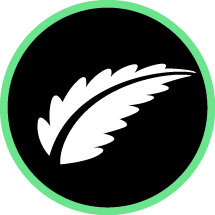

Learn More About CBD & CBD Products
CBD has become very popular for its range of potential health benefits, and with the variety of CBD products available, it’s easier than ever to find one that fits your needs. Whether you’re interested in using CBD for anxiety, pain, or just overall wellness, make sure you’re buying CBD from a reliable dispensary and always consult with a healthcare provider or Verilife budtender if you’re unsure.
Sources:
1. “The ultimate guide to CBD (cannabidiol),” Weedmaps, https://weedmaps.com/learn/dictionary/cbd
2. “A Cross-Sectional Study of Cannabidiol Users,” National Library of Medicine, July 2018, https://www.ncbi.nlm.nih.gov/pmc/articles/PMC6043845/
3. “CBD: What You Need to Know Before You Try,” Cedars Sinai, April 14, 2019, https://www.cedars-sinai.org/blog/cbd-safe.html
4. “More people are using CBD products. There’s still little research on the benefits and risks,” AP News, December 13, 2023, https://apnews.com/article/marijuana-cbd-cannabis-delta-8-thc-690dcbbd118371ed20a2871bab35c57d
5. “Cannabinoid pharmacology: the first 66 years,” National Library of Medicine, January 2006, https://www.ncbi.nlm.nih.gov/pmc/articles/PMC1760722/
6. “Cannabidiol (CBD): What We Know and What We Don’t,” Healthline, July 27, 2024, https://www.healthline.com/health/your-cbd-guide
7. “Cannabinoids and Pain: New Insights From Old Molecules,” Frontiers, November 13, 2018, https://www.frontiersin.org/journals/pharmacology/articles/10.3389/fphar.2018.01259/full
8. “The ABCs of CBD: Separating fact from fiction,” NIHMedlinePlus Magazine, https://magazine.medlineplus.gov/article/the-abcs-of-cbd-separating-fact-from-fiction
9. “Does CBD oil work for chronic pain management?” MedicalNewsToday, May 22, 2023, https://www.medicalnewstoday.com/articles/319475
10. “What is CBG (cannabigerol) & what does this cannabinoid do?” Leafly, July 31, 2025, https://www.leafly.com/news/cannabis-101/what-is-cbg-cannabinoid
11. “What Is CBDA? Understanding the Acidic Cannabinoid,” Leafwell, October 3, 2025, https://leafwell.com/blog/cannabidiolic-acid-cbda-cannabinoid
12. “9 Science-Backed Benefits of CBD Oil (Plus Side Effects),” Forbes Health, January 24, 2024, https://www.forbes.com/health/cbd/cbd-oil-benefits/
13. “What Are the Therapeutic Benefits of CBDA?” Veriheal, February 16, 2022, https://www.veriheal.com/blog/what-are-the-therapeutic-benefits-of-cbda/
14. “Medical Marijuana,” Epilepsy Foundation, https://www.epilepsy.com/treatment/alternative-therapies/medical-marijuana
15. “What are the benefits of CBD - and is it safe to use?” Mayo Clinic, https://www.mayoclinic.org/healthy-lifestyle/consumer-health/expert-answers/is-cbd-safe-and-effective/faq-20446700
16. “People with fibromyalgia substituting CBD for opioids to manage pain,” Michigan Medicine, June 23, 2021, https://www.michiganmedicine.org/health-lab/people-fibromyalgia-substituting-cbd-opioids-manage-pain
17. “Cannabidiol Use for Fibromyalgia: Prevalence of Use and Perceptions of Effectiveness in a Large Online Survey,” The Journal of Pain, May 2021, https://www.jpain.org/article/S1526-5900(20)30117-6/fulltext
18. “CBD for Depression and Anxiety,” WebMD, May 12, 2023, https://www.webmd.com/cannabinoids/cbd-depression-anxiety
19. “CBD for Arthritis Pain: What You Should Know,” Arthritis Foundation, https://www.arthritis.org/health-wellness/healthy-living/managing-pain/pain-relief-solutions/cbd-for-arthritis-pain
20. “Pharmacotherapeutic considerations for use of cannabinoids to relieve pain in patients with malignant diseases,” National Library of Medicine, April 23, 2018, https://www.ncbi.nlm.nih.gov/pmc/articles/PMC5922297/
21. “Cannabinoids suppress inflammatory and neuropathic pain by targeting α3 glycine receptors,” National Library of Medicine, June 4, 2012, https://www.ncbi.nlm.nih.gov/pmc/articles/PMC3371734/
22. “CBDA vs. CBD: What to know,” Medical News Today, September 13, 2024, https://www.medicalnewstoday.com/articles/cbda
23. “An Overview of Cyclooxygenase (COX)” Verywell Health, September 5, 2025, https://www.verywellhealth.com/cyclooxygenase-cox-1-and-cox-2-2552188
24. “Is CBD a Safe and Effective Sleep Aid?” Sleep Foundation, April 2, 2024, https://www.sleepfoundation.org/sleep-aids/cbd-for-sleep
25. “Cannabidiol in Anxiety and Sleep: A Large Case Series,” National Library of Medicine, 2019, https://pubmed.ncbi.nlm.nih.gov/30624194/
26. “What does ‘full spectrum’ cannabis mean and why is it important?” The Cannigma, https://cannigma.com/plant/full-spectrum-cannabis/
27. “What To Know About The Types Of CBD,” Forbes Health, October 6, 2023, https://www.forbes.com/health/cbd/types-of-cbd/
28. “CBD products are everywhere. But do they work?” Harvard Health Publishing, August 8, 2024, https://www.health.harvard.edu/staying-healthy/cbd-products-are-everywhere-but-do-they-work
29. “Hemp,” Weedmaps,https://weedmaps.com/learn/dictionary/hemp
30. “CBD, marijuana and hemp: What is the difference among these cannabis products, and which are legal?” MSU Today, April 6, 2021, https://msutoday.msu.edu/news/2021/cbd-marijuana-and-hemp
31. “CBD shown to ease anxiety without the risks that can come with THC,” CU Boulder Today, February 27, 2024, https://www.colorado.edu/today/2024/02/27/cbd-shown-ease-anxiety-without-risks-can-come-thc#:~:text=%E2%80%9COur%20study%20suggests%20that%20CBD,prescription%20medications%2C%E2%80%9D%20said%20Bidwell


